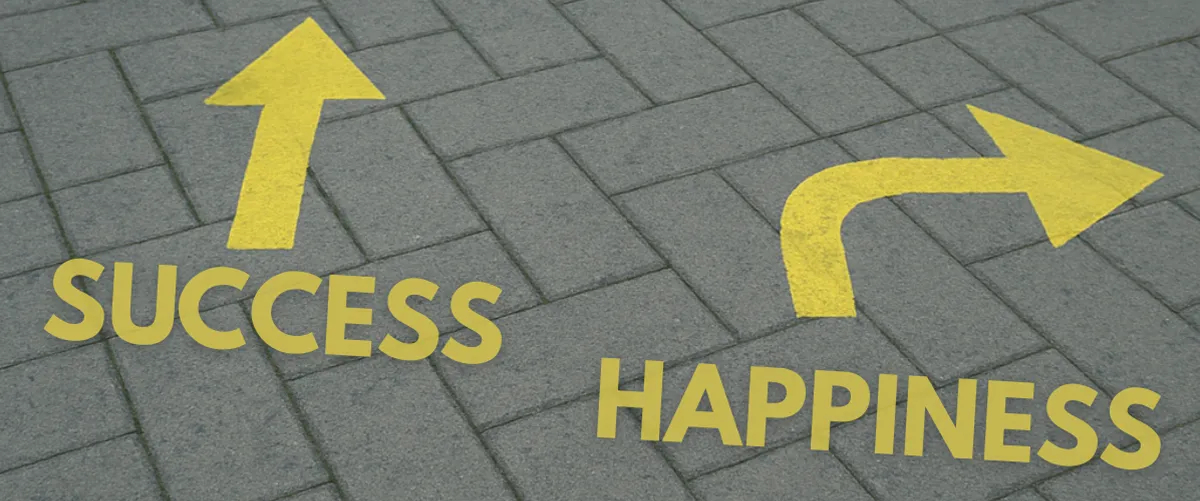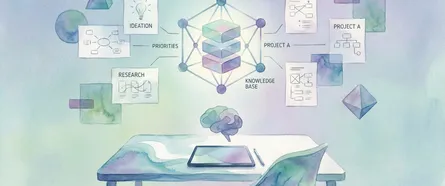
The Happiness Link to Success
- Eric Kraus
- productivity
- Feb 10, 2012
Introduction
Many people believe that success will lead us to happiness. Regardless of how you define success: financial freedom, family, friendships, health, love, etc. The belief is by obtaining or achieving these things, happiness will follow.
Unfortunately, it’s not true. And in fact, we have it backwards.
Happiness Leads To Success
There is significant research showing that people who are happier tend to demonstrate better work performance, receive more income, have better and longer relationships and even have better health and overcome illnesses quicker.
A merry heart doeth good like a medicine: but a broken spirit drieth the bones.
If success doesn’t bring us happiness, what does?
Path to Happiness
Researchers have isolated 6 different qualities that have the strongest correlation to happiness.
The more people demonstrate these specific behaviors, the more they receive - what psychologists and researchers call- short-term positive affects . These micro positive moments accumulate in our lives and lead people to be happier and have the strongest correlation to accounts for “being successful”.
Here they are in no particular order:
1. A Positive Outlook
People that look at the world and others with optimism tend to be happier.
These people tend to judge situations and other people with more favorable opinions. They look for the best part of a situation or see opportunities despite being presented with challenges. They are not oblivious to faults or risks, but they do not focus on these characteristics.
Recommendation: Be patient. Look for opportunity in uncomfortable situations. Don’t dwell on what you can’t change.
2. Sociability And Activity
Research shows that individuals that are social and participate in social activities tend to be happier.
A brief tour on how the brain processes information.
Dopamine
Dopamine is a neurotransmitter and hormone that plays a crucial role in the brain, affecting emotions, behavior, and movement. It’s known for its role in the reward system, driving motivation, and feelings of pleasure.
Dopamine Myth
A common myth is that dopamine, itself, “makes you happy”. Rather, dopamine is a reward hormone that is released after a good experience, helping reinforce positive experiences.
Dopamine + social interactions has typically been associated with being extroverted, but introverts still benefit from being with other people too, just in a different way.
Introverts and Extroverts
Many of us have a basic understanding of the difference between introverts and extroverts. But the physiological difference between these types of people, and their brains, offers a unique perspective on happiness.
Disclaimer
This is not an comprehensive explanation of the brain, nor am I offering any medical or mental health advice.
One of the most fundamental differences between Introverts - those who enjoy alone time and Extroverts - those who enjoy social situations (those are the stereotypes), is how their brains are constructed.
Introverts
Introverts tend to have a thicker pre-frontal cortex, more gray matter, and increased activity in the frontal lobes, suggesting a preference for deep thought and reflection.
In more simple terms, a stimulus in an introvert’s brain may follow a longer path through many different parts of the brain. Because of this longer journey, an introvert may have a busier mind and also be more sensitive to dopamine .
This can lead to overstimulation in larger social situations. Which is why introverts tend to require additional alone time to withdraw and recharge.
Extroverts
Extroverts, on the other hand, often have thinner gray matter and may be more impulsive, processing information quickly. Extroverts have more dopamine receptors which causes them to crave more external stimulation.
Extroverts may actually need extra social interactions to support a healthy balance within the brain.
Belonging
Studies have shown that all humans need some social interaction as it supports our sense of belonging. One recent study showed that small positive interactions had a positive affect on both introverts AND extroverts.
In this study , some participants were asked to go into a coffee shop and make small talk and conversation with the barista while ordering. The other half were instructed to limit conversation and just order.
The results were pretty cool.
“In the current study, people who had a social interaction with a barista (i.e., smiled, made eye contact, and had a brief conversation) experienced more positive affect than people who were as efficient as possible. Further, we found initial evidence that these effects were mediated by feelings of belonging.”
“…this field experiment documents how seemingly trivial social experiences can shape belonging and well-being in the real world.”
Recommendation
All of this is to say, humans require belonging and belonging has a very strong link to happiness. Each of us as individuals, manage how we get there differently.
Recommendation: Everyone should spend time in social situations: hanging out with friends, meeting new people, etc. However, always listen to your mind/body. This is not call to exhaustion . For introverts, this might involve micro-social engagement (e.g. small talk at a coffee shop) - especially where the duration and intensity can be managed.
3. Likability and Flexibility
People that are seen as likable tend to be happier themselves. Also, those individuals that are more flexible in situations out of their control tend to show stronger signs of happiness.
This may very well be tied to Sociability and Activity above!
Recommendation: Relax. Exercise your empathy skills when with other people. If you’re a control freak, try to go with the flow a bit more often. Talk to strangers!
4. Giving
People who enjoy helping others tend to be happier. It makes us feel good to do something for others.
However, research shows that people who engage in pro-social (voluntary) giving behaviors show the strongest correlation to being happy.
Recommendation: Build a habit of generosity towards others. Not only are you doing something for someone else, which is rewarding in itself, but you’re strengthening the other qualities on this list as well.
5. Health and Coping
People in better physical and mental health tend to be happier. Duh.
With fewer things to worry about, people can focus more on the other qualities on this list. Like many of the other characteristics on this list, this is cyclical in nature. Generally, the healthier people are, the happier they tend to be and the better their immune system is at fighting off illnesses.
Recommendation: Eat well. Exercise. Get lots of rest. Smile. Repeat.
6. Problem Solving and Creativity
People who are creative and optimistic “thinkers” and solvers tend to be happier. These people strangely enjoy change.
These people also tend to enjoy activities like creating art or music, drawing, photography, writing, etc.
Recommendation: Spend time each day creating something that never existed before. If you don’t feel the creative bug, try solving a puzzle that challenges you to think differently each day (crossword, trivia, etc).
Summary
“The happiest people are those who think the most interesting thoughts.
Happiness not only sets us up to be “successful”, but it allows us to live longer, healthier, more enjoyable lives. To die with a smile is about the greatest achievement anyone could wish for.
Source: http://www.apa.org/pubs/journals/releases/bul-1316803.pdf

